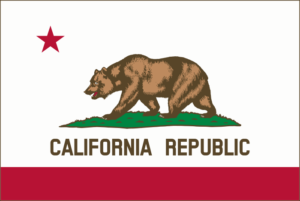
On Friday, June 3, 2022, a bipartisan group of lawmakers published a discussion draft for the proposed American Data Privacy and Protection Act (the “ADPPA”). The ADPPA is a draft bill that has yet to be introduced in the U.S. House or Senate, which means that any provision is subject to amendment. However, even in draft form, the ADPPA is a notable advance in the efforts for a federal privacy law with sponsorship from both democrats and republicans, as well as members of the U.S. House and Senate.
Continue Reading What is the American Data Privacy and Protection Act?


 It was not long ago that data privacy was an afterthought for many companies, and in some regards, it may still be an afterthought. Since 2018, major laws and regulations governing companies’ collection, use, and disclosure of personal information have been enacted, including the General Data Protection Regulation (GDPR),
It was not long ago that data privacy was an afterthought for many companies, and in some regards, it may still be an afterthought. Since 2018, major laws and regulations governing companies’ collection, use, and disclosure of personal information have been enacted, including the General Data Protection Regulation (GDPR),  Recently, multiple states have enacted and passed new data privacy laws and bills (
Recently, multiple states have enacted and passed new data privacy laws and bills (

 The Colorado Privacy Act (“CPA”) takes effect July 1, 2023, and will provide express consumer rights, as well as controller and processor obligations, relating to personally identifiable information of Colorado consumers. This month, the Office of the Colorado Attorney General (the “Office”)
The Colorado Privacy Act (“CPA”) takes effect July 1, 2023, and will provide express consumer rights, as well as controller and processor obligations, relating to personally identifiable information of Colorado consumers. This month, the Office of the Colorado Attorney General (the “Office”) 
 The CCPA has been up and running for a couple of years now, with changes coming in 2023 with the amendments from the
The CCPA has been up and running for a couple of years now, with changes coming in 2023 with the amendments from the 
 Whether you are an attorney advising clients, a medical professional treating patients via telemedicine, or anyone else working remotely, your second workplace or office might be providing more than just convenience. If you have a smart home device, such as one of the many varieties now available from companies like Google (Home/Nest), Amazon (Alexa), Microsoft (Cortana), or Apple (Siri), your remote work discussions (and conversations in general) may be less private than you realize. While convenient and sometimes helpful, these devices might be creating a record of more than your favorite songs and compromising your patient’s, client’s, or company’s confidential information.
Whether you are an attorney advising clients, a medical professional treating patients via telemedicine, or anyone else working remotely, your second workplace or office might be providing more than just convenience. If you have a smart home device, such as one of the many varieties now available from companies like Google (Home/Nest), Amazon (Alexa), Microsoft (Cortana), or Apple (Siri), your remote work discussions (and conversations in general) may be less private than you realize. While convenient and sometimes helpful, these devices might be creating a record of more than your favorite songs and compromising your patient’s, client’s, or company’s confidential information.